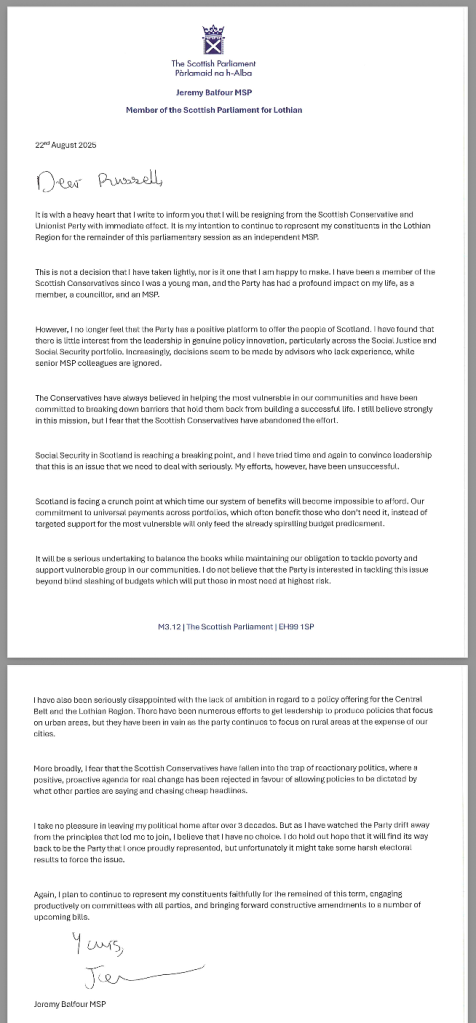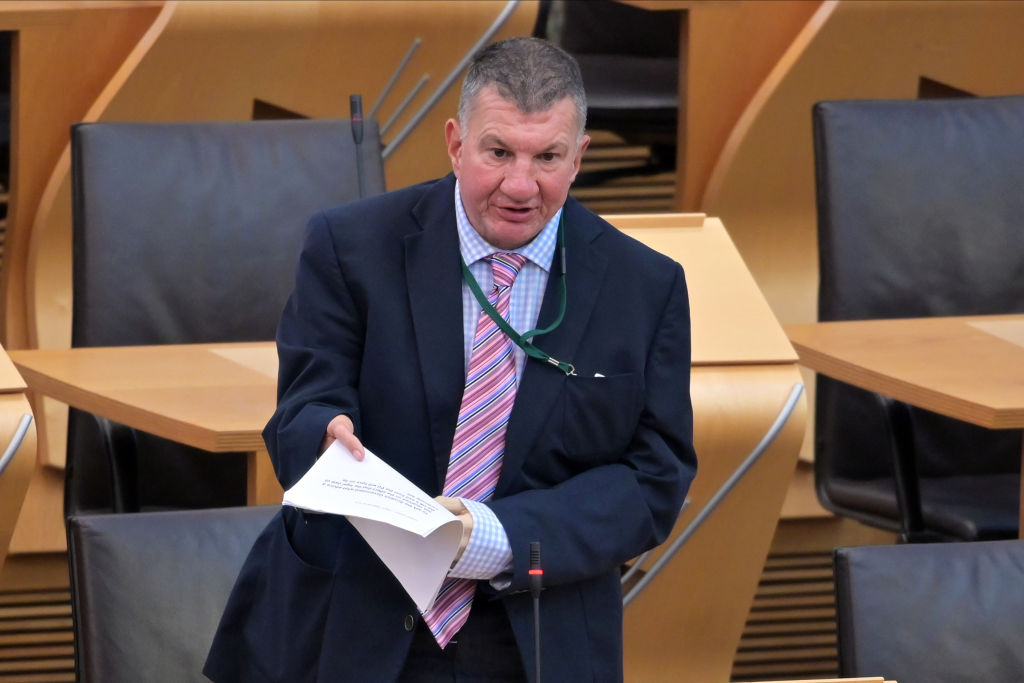The Scottish Conservatives aren’t having the best time of it at the moment. In more bad news for the blues, this morning Jeremy Balfour MSP, the party’s social justice spokesperson, has decided to quit over its ‘reactionary politics’. In a heartfelt letter to leader Russell Findlay, the Lothian MSP takes aim at his former party for ‘no longer [having] a positive platform to offer the people of Scotland’ and being uninterested in helping those most in need in society.
Balfour has served in the Scottish parliament for almost a decade and held a number of briefs during that time – including on housing, equalities and welfare – and has had his fair share of controversies over abortion buffer zones and benefits for the terminally-ill. He has also been a long-time campaigner on helping disabled people get into work, having been born with limb disabilities himself. But Balfour no longer believes the Scottish Conservative party is the best vehicle to helping society’s most vulnerable, accusing Findlay of having ‘abandoned the effort’:
The MSP for Lothian is not the first member of the Scottish Tories to abandon ship this year
I have found that there is little interest from the leadership in genuine policy innovation, particularly across the Social Justice and Social Security portfolio. Increasingly, decisions seem to be made by advisors who lack experience, while senior MSP colleagues are ignored.
Social Security in Scotland is reaching a breaking point, and I have tried time and again to convince leadership that this is an issue that we need to deal with seriously. My efforts, however, have been unsuccessful.
Hitting out at Scotland’s welfare system and the Conservatives’ policy positions, Balfour adds:
Our commitment to universal payments across portfolios, which often benefit those who don’t need it, instead of targeted support for the most vulnerable will only feed the already spiralling budget predicament.
It will be a serious undertaking to balance the books while maintaining our obligation to tackle poverty and support vulnerable group in our communities. I do not believe that the party is interested in tackling this issue beyond blind slashing of budgets which will put those in most need at highest risk.
That’s not all. The party’s social justice spokesperson points to the party’s focus on rural areas – where it tends to perform best electorally – at the expense of urban Scotland. And on the Tories’ political direction under Findlay and his advisers, he explains:
More broadly, I fear that the Scottish Conservatives have fallen into the trap of reactionary politics, where a positive, proactive agenda for real change has been rejected in favour of allowing policies to be dictated by what other parties are saying and chasing cheap headlines.
Concluding, Balfour reiterates his intention to continue representing his constituents as an independent until next year’s election and laments the change his former party has undergone. He warns that ‘it may take some harsh electoral results’ to help it find its way back. He’s certainly not wrong about how the political tide is turning – the Scottish Tories have seen Nigel Farage’s Reform party pick up not just support but a number of their councillors too. A Reform UK insider even told Steerpike this week that organisers expect to see the Conservatives go from being the largest opposition party in Holyrood to ‘single seats’ at next year’s Holyrood election, while Farage’s group has been projected to pick up more than 15 MSPs from a standing start.
The MSP for Lothian is not the first member of the Scottish Tories to abandon ship this year. Onetime leadership contender Jamie Greene left the party earlier in the year for yellower pastures, moving to the Liberal Democrats in April. Now Balfour is following him out, albeit as an independent rather than joining another political party. And while Greene’s departure was catalysed by what he saw as the Conservatives’ shift to the right – and embrace of ‘Trump-esque’ politics – Balfour’s focus on specific policy areas may prompt the Tories to take a closer look at where they’re missing the mark in Scotland.
Read the letter in full here:








Comments